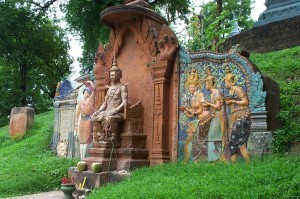This part 16, the author Sophan Seng describes the political leadership pragmatism by reflecting Western meaning and Cambodia political culture affected by Buddhism.
 Political pragmatism means policy, platform, or political actions that are realistic and practical. It stems from combining all factors in order to select the best one.
Political pragmatism means policy, platform, or political actions that are realistic and practical. It stems from combining all factors in order to select the best one.
For Cambodia, political culture of pragmatism should follow the 10 factors taught by the Buddha. Do not go upon what has been acquired by repeated hearing ; nor upon tradition; nor upon rumor ; nor upon what is in a scripture ; nor upon surmise; nor upon an axiom; nor upon specious reasoning; nor upon a bias towards a notion that has been pondered over; nor upon another’s seeming ability; nor upon the consideration, “The monk is our teacher.” Kalamas, when you yourselves know: “These things are good; these things are not blamable; these things are praised by the wise; undertaken and observed, these things lead to benefit and happiness,” enter on and abide in them.’ – Kalama Sutta
Leaders must design the future by using past lessons to observe the present movement. Cambodia has already experienced sweet and bitter for all leaders to achieve their future framework.
